
What you will learn in this post:
- Why your body starts gaining weight, especially around the belly
- Why menopausal weight gain is risky
- One thing you can do to beat belly fat
It seems like a cruel twist of fate, that just as we begin to relax because we are no longer menstruating, we get hit by a host of new challenges instead. Not only does menopause (and perimenopause) cause hot flashes, incontinence, vaginal dryness and more in some women, it can also cause us to gain weight!
Weight gain — even while maintaining the same diet and exercise routine — is a problem for many women, especially weight gain around the abdominal area. Yes, the dreaded belly fat! So many of my past patients and clients have complained about belly fat, and how hard it has been to lose.
In fact, I myself have been over 80 lbs overweight! And I lost it all! But then I hit menopause and again, put on over 20 lbs quickly. I had to figure out how to conquer that healthily and also why hormones and menopausal changes make us put on weight!
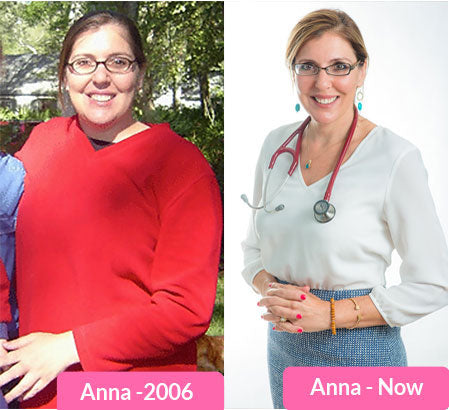
So you’re not alone!
Unfortunately weight gain during this time of our lives is common, though not unbeatable. Our body is going through changes, so the old methods used to keep us trim and in shape might not work as well as it used it, or sometimes it doesn’t work at all.
I’ve seen research state that it’s an average of 5 lbs weight gain. Well, that was NOT my experience or observation so I dug deeper and found that article was published in 1999¹ for Australian women aged between 47 to 57.
Maybe that explains it. A lot has changed in 20 years! In my estimates, it’s a 15-20 lb weight gain and others, like me have put on 25 lbs or more! What is your experience?
Perhaps some might wonder if it’s such a bad thing to gain a few pounds? Of course not! But the drawbacks of weight gain are more than just cosmetic.
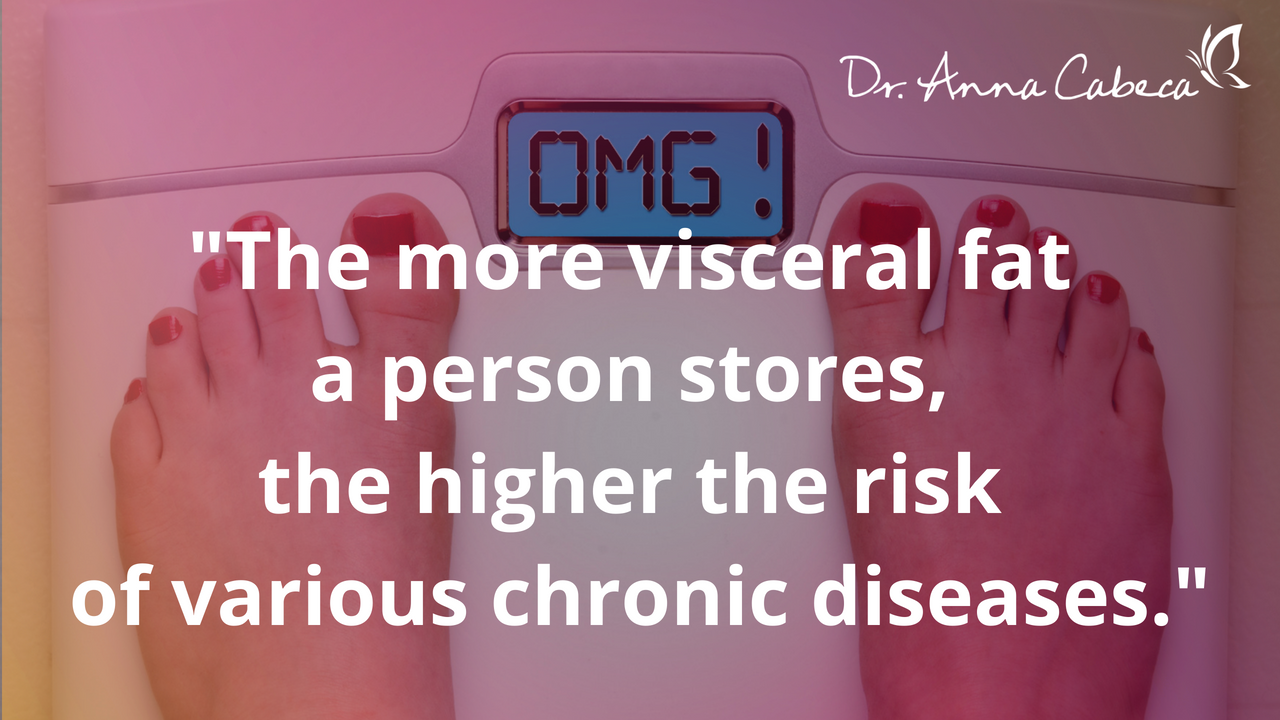
Why Menopausal Weight Gain Can Be Risky
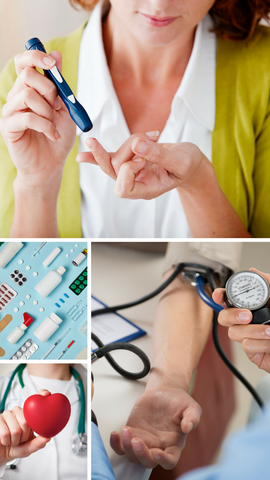
As we go through midlife, we start gaining fat around our abdomen — abdominal fat is largely visceral. This basically means that fat accumulates in the spaces between our organs. Researchers have identified various chemicals that link visceral fat to a surprisingly wide variety of chronic diseases.
Some of the conditions that visceral fat can lead to include (but not limited to), cardiovascular diseases, dementia, asthma, diabetes, hypertension, hyperlipidemia, and certain cancers (including breast and uterine cancers).
In fact, being obese can also exacerbate other menopausal symptoms such as hot flashes. Not to mention how it affects our self-image, sexual libido, and function and our relationship with our partners. I can personally attest to this!
This isn’t about not loving our bodies, no matter its shape and size. This is about how this type of weight gain is caused by underlying symptoms that can lead to more severe symptoms. It affects our physical body, our emotions, and mental state.
But before we try and beat this weight gain, let’s explore why the body starts gaining weight in the first place!
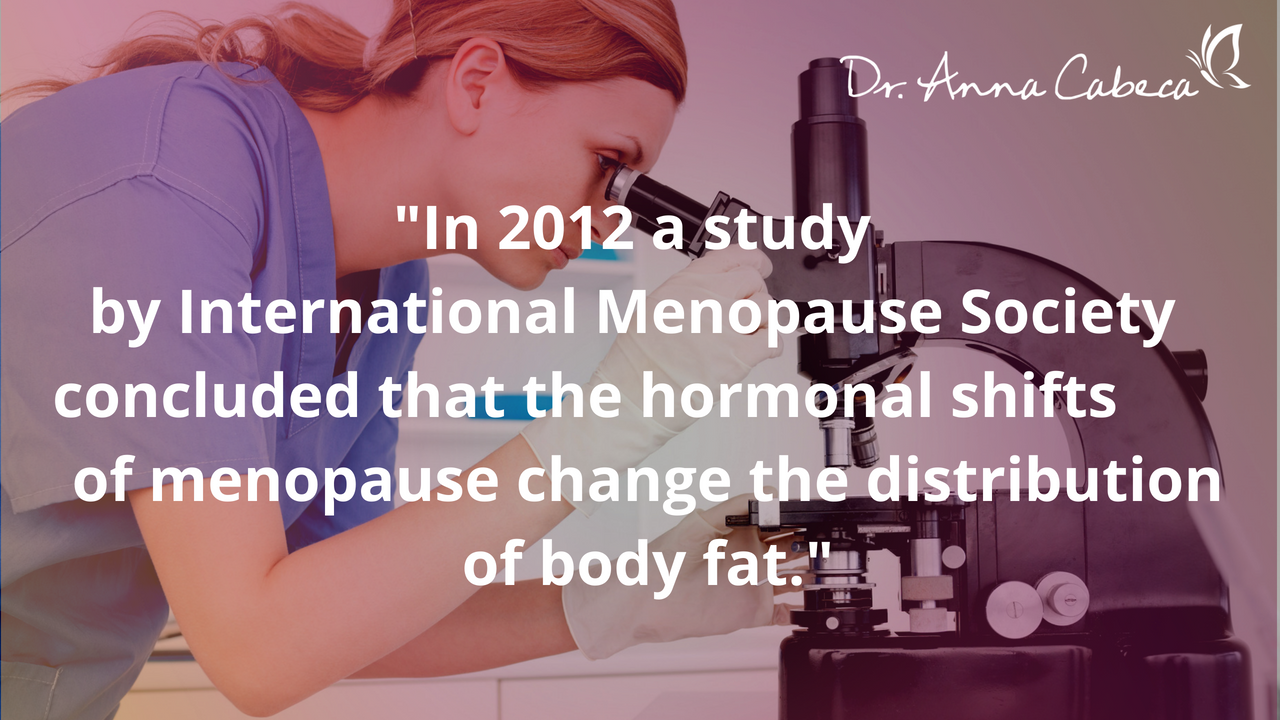
What’s Going On With My Belly?
So here’s where things can get a little confusing. Weight gain is caused by quite a few factors. Scientist reviewed decades of research In a 2012 study by International Menopause Society and concluded that the hormonal shifts of menopause change the distribution of body fat, making it more likely to accumulate in the abdomen.
However, other research has emerged that also points to a few other factors. But let’s start with the most obvious one:
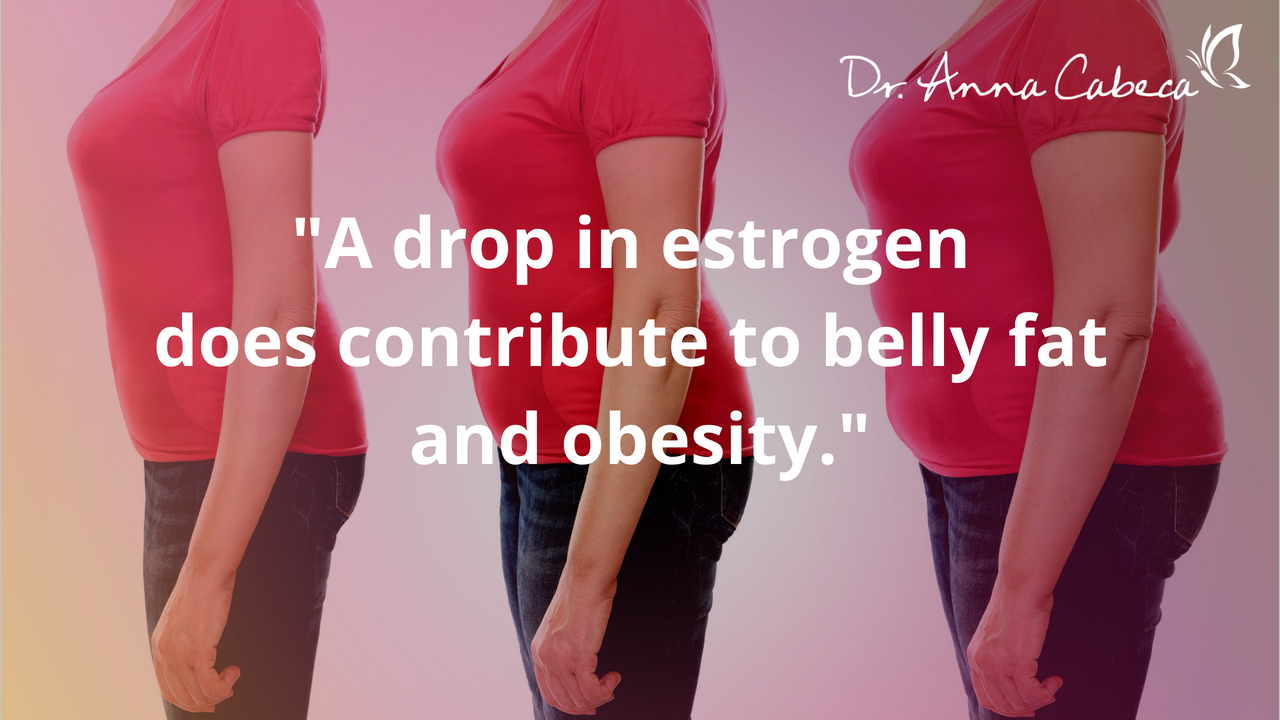
Hormonal Changes
I’ve mentioned before that as we age, our bodies slowly decreases its production of our reproductive hormones — estrogen, progesterone, DHEA, and testosterone. The decrease of estrogen especially leads to a shift of fat to the midsection.
A few years ago the Mayo Clinic conducted a study that compared fat tissue in pre- and post-menopausal women. They found that on a cellular level, two enzymes that work to synthesize and store fat were more active in postmenopausal women — something they attributed to a drop in estrogen.
So yes, a drop in estrogen does contribute to belly fat and obesity, but it isn’t the only reason.
And in fact, we are not really clear why it attacks our belly. Science has now shown that fat is an endocrine organ and does produce estrogen, so maybe in here lies part of the answer?
Less Movement And Decreasing Muscles Mass
Our hormones also contribute to the decrease of our lean body mass, so this means we lose muscle mass. Muscles help to burn calories while we work out as well as when we’re resting, so losing muscle mass means we are burning less fat.
Combine that with lifestyle changes such as sitting more, and moving less, and it’s a perfect recipe for weight gain! Exercises that used to work for you before might not have the same effect as it used to.
Other Menopausal Changes And Medication
Sometimes, menopausal symptoms such as sleep disturbances, fluctuating moods and more can also affect our ability to keep to our regular diet due to cravings. We might gravitate towards a candy bar as a pick me up, instead of a healthier snack.
Certain medication can also contribute to weight gain, such as antidepressants that are commonly prescribed for menopause or beta-blockers for palpitations, for instance. These little things add up and slowly contribute to weight gain.
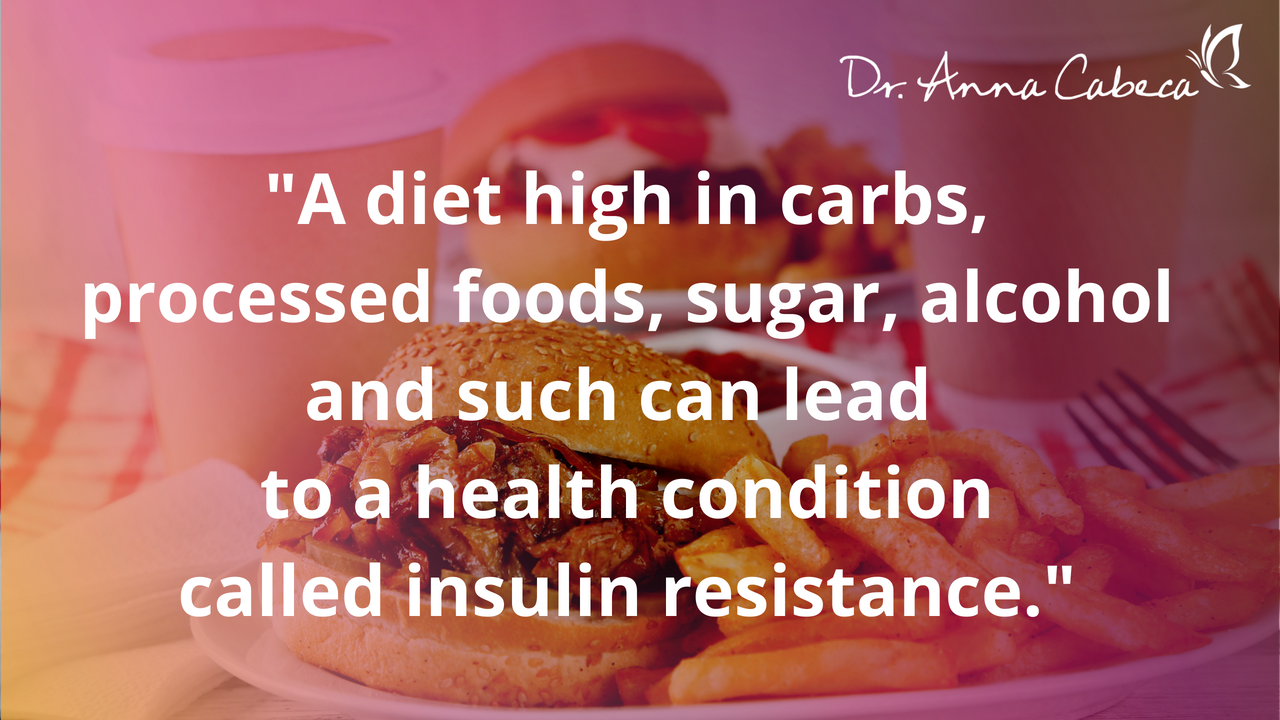
Diet And Insulin Resistance
A big factor that contributes to abdominal weight gain is our diet. Insulin resistance and blood sugar imbalance is a huge problem that leads to increased belly fat.
So what kind of diet am I talking about here? A diet that is high in carbs, processed foods, sugar, alcohol and such. When you eat a lot of carbs on an ongoing basis, insulin is constantly stimulated. This can lead to a health condition called insulin resistance, where the cells start to resist the insulin.
And in menopause “a lot” of carbs really isn’t that much, and sadly the “good” carbs factor in here too, such as fruits and grains.
Getting Clear On Insulin Resistance
When you eat carbs your body’s blood glucose increases and spikes your blood sugar. Your body releases insulin as a reaction to elevated blood glucose levels. Insulin is produced to get the glucose from your body and into the cells.
There it gets converted to energy. Your body burns the glucose to make its energy and then insulin tells the cells to store their energy as carbs or fat (the unhealthy and dreaded belly fat).
When this happens, your blood sugar just continues to rise and you can become diabetic. Along with diabetes, many other health issues including heart disease and even dementia have been associated with insulin resistance.
Getting control of blood sugar can lead to the loss of inches around the waist practically overnight. Plus there is the added benefit of restoring balance to other hormones, like thyroid, adrenal, and sex hormones.

Beating Belly Fat And More
So as you can see, a lot of factors contribute to menopausal weight gain. Yes, the rules have changed, and it might feel as if no one told you, but with the right lifestyle changes, you can lose the fat and take control of your weight!
One of the biggest changes I made in my life in order to lose my excess weight and gain some sanity, was with my diet! I literally took a year off to travel around the world in the pursuit of knowledge that I’ve since shared with thousands of my clients (and now with you!).
Many of us think that we just have to eat less, and workout more. But this can be more damaging and doesn’t really address the underlying problem — our hormones are outta whack! This is why I recommend you start with your diet because you’re going to want to first and foremost, balance your hormones.
Once you get that balanced, it will automatically help you lose fat, and build muscles that will keep fat burning even when you’re not moving. Sure, you might have to change your workout a little bit, but at least your system will be working at an optimal condition to facilitate fat loss.
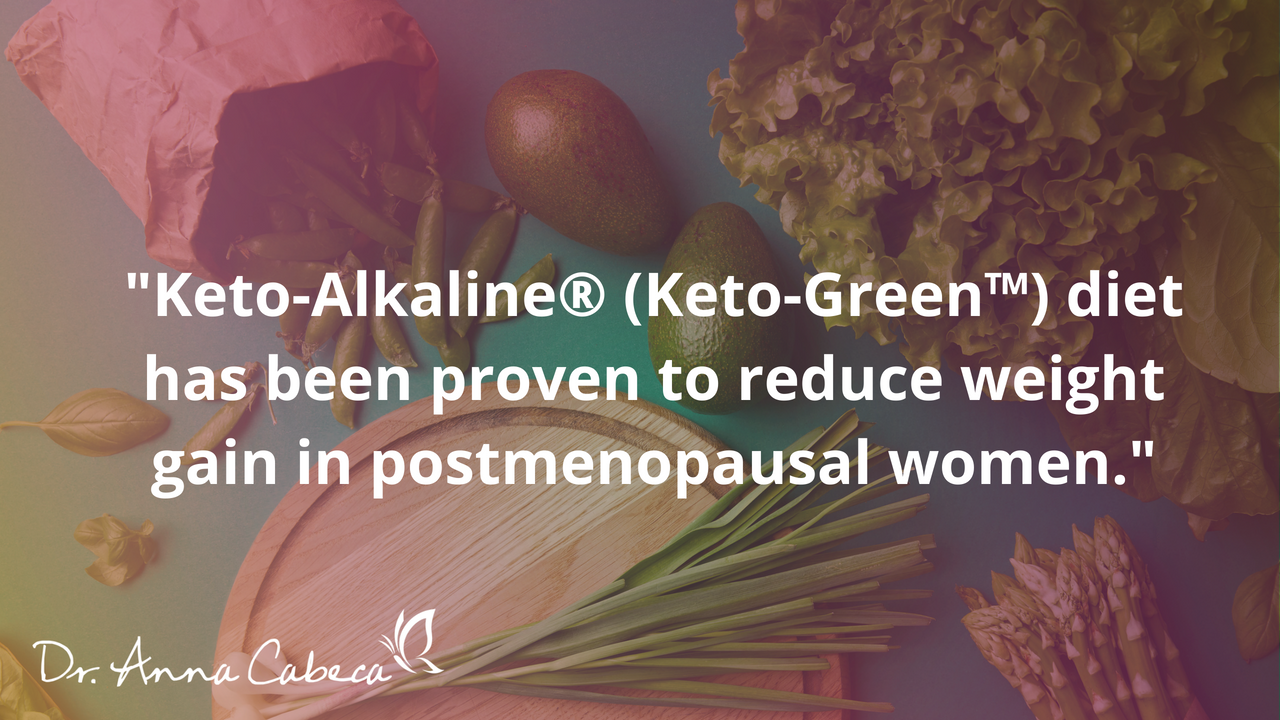
The Keto-Green Diet
As I mentioned above, when I changed my diet, it changed my life. I kid you not. My Keto-Alkaline® Diet, became the perfect plan for fat loss and optimal health because it allowed my body to use fat for fuel while staying alkaline.
A keto-alkaline diet means eating a diet that is low in carbs, high in (good) fats and alkalinity which has been proven to reduce weight gain in postmenopausal women. What happens if you don’t eat (unhealthy) carbs? You eliminate the production of glucose — and the production of insulin — so your body looks around for something other than glucose to burn for energy… and what does it burn? Stored fat!
The ketogenic diet works by keeping the body’s carbohydrate stores almost empty. Your body starts burning its own body fat for energy, helping you lose weight quickly. It will also burn fat that you’re consuming through your diet, assuming you are eating healthy fats (not trans fats, etc.), giving you a more stable energy throughout the day (as opposed to the sugar spikes you get from carbs).
Start With Alkalinity
I encourage you to first get your body alkaline before introducing keto into your diet. When experts talk about alkalinity and maintaining optimal pH, they’re referring to urinary, not blood pH. We want to maintain a pH of around 7.4 and above for good health.
Getting alkaline basically means avoiding acidic foods like meats, and alcohol, while increasing alkaline foods such as vegetables, water, and good fats. Once you get your body to an alkaline state (you can test your urine with my urine test strips here), you can eliminate carbs from your diet to get to a ketosis state and start eliminating fat — especially belly fat!
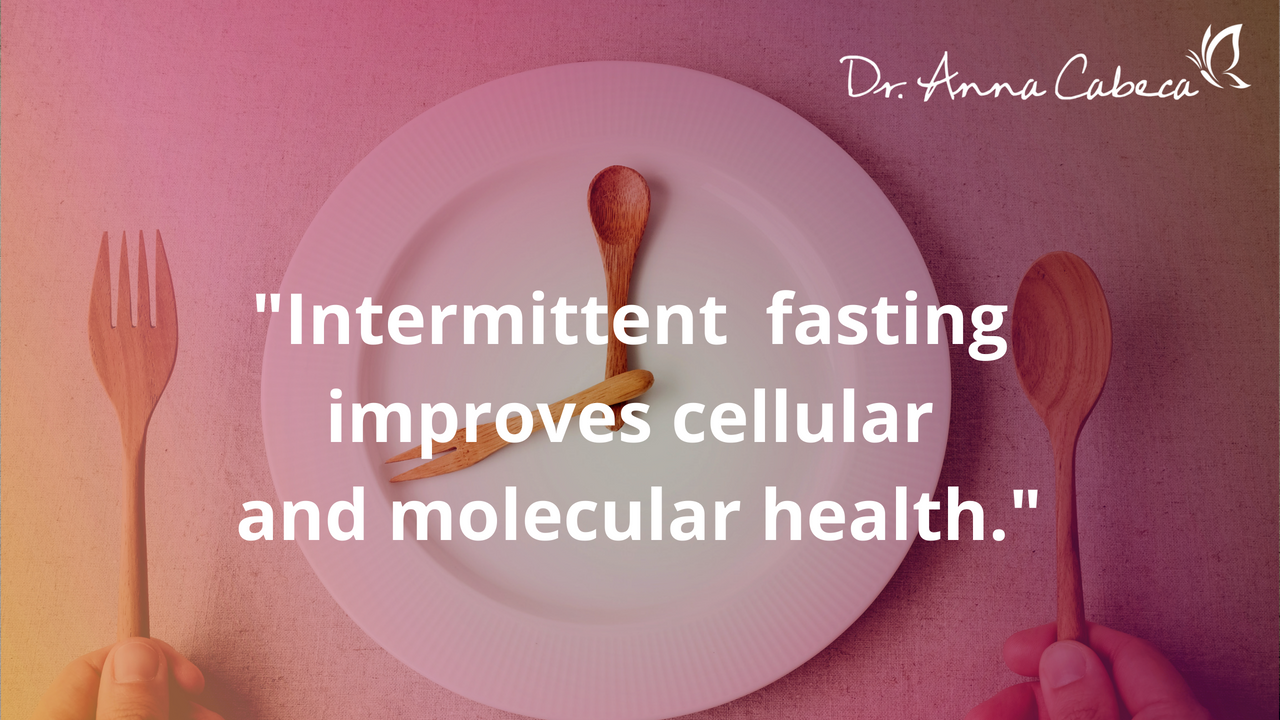
Add Intermittent Fasting
Part of my healthy routine includes intermittent fasting as well as committing to a variety of other Keto-Alkaline lifestyle principles (such as good stress management, sleep, positivity, patience, pleasure, and exercise, etc.).
I usually fast 15 hours between dinner and breakfast, sometimes longer, and sometimes not. Then I eat two good Keto-Alkaline meals and possibly one light meal or protein shake in the 9-hour window, without snacking. I also will do 24 to 72-hour fasts from time to time.
Intermittent fasting improves cellular and molecular health. It supports enhanced mitochondrial health, repairs DNA and supports a process called autophagy. Autophagy is a form of cellular cleaning, and it is important because the accumulation of garbage cells is believed to be a hallmark of aging. In addition, these cells also have a greater risk of becoming infected or cancerous.
More and more research has examined the health benefits of fasting, finding many significant impacts to our bodies – at the cellular level – when we restrict the time we “feed” and increase the time we fast. One of these benefits is weight loss.
Let me just emphasize we want HEALTHY fasting. Some women take it too far and feeling unwell. When you are fasting, you need to be doubly sure that you are taking in the healthiest nutrients that your body needs, nourishing your body at the cellular level.

Keep It Simple
This might seem like a lot to digest, so I suggest taking it slow, and keeping it simple! Start with breakfast! It’s also a great way to kick-start your day with a bang! Make yourself a healthy green low carb smoothie that will set the tone for your day.
I find that my Mighty Maca® Plus is one of the best ways to get alkaline without having to spend a whole lot of time preparing a healthy a breakfast. Aside from maca, Mighty Maca Plus also contains over 30 superfoods, including turmeric which has been found to prevent postmenopausal weight gain.
Once you get that habit in place, you can move on to lunch and dinner, and then slowly add intermittent fasting to your diet too.
So To Sum It Up…
Losing belly fat is more than just eating less and exercising more. Once we understand why we’re gaining weight, then working to eliminate this weight becomes easier. Changing your diet is your first priority. Sometimes, it’s all that you need to kick-start your system. Before I leave, here are a few articles you can read to help get you started:
Citation:
-
Climacteric. 1999 Sep;2(3):205-11. Weight gain and the menopause: a 5-year prospective study. Guthrie JR1, Dennerstein L, Dudley EC.




